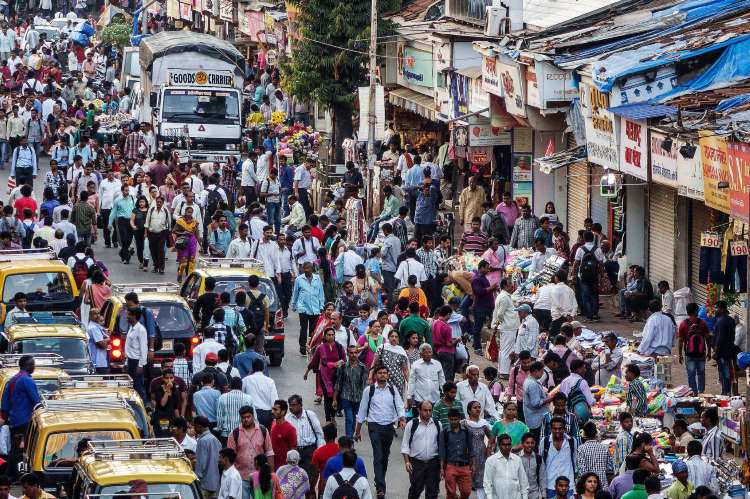
India’s decennial population census, a critical exercise that informs evidence-based policymaking, is set to resume after a significant delay. Originally planned for 2021, the census was postponed due to the COVID-19 pandemic, creating a prolonged data gap that complicates resource allocation, policy formulation, and the delivery of essential services. Government officials indicate that work on the census and the National Population Register will begin in early 2025, with data to be released by 2026.
The delay disrupted the established census cycle with broad implications for India’s economic planning, social justice initiatives, and commitments on the international stage. As India awaits updated data, the government must decide whether to incorporate a caste census, an addition sought by some political parties to ensure more accurate demographic representation.
India’s population census is a vital source of demographic and socio-economic data, guiding decisions on everything from infrastructure development to social welfare programmes. The last census, conducted in 2011, is no longer reflective of the current realities of India’s population. Over the last decade, significant changes have occurred — migration patterns have shifted, urbanisation has accelerated, and economic conditions have evolved. Relying on outdated data can lead to inefficient resource distribution and ineffective policy interventions.
READ I Viksit Bharat: State governments hold the key to economic prosperity
Risks of relying on old data
Accurate population data is essential for determining the needs of various regions and communities. For instance, healthcare facilities, educational institutions, and infrastructure projects are typically planned based on population density and demographic profiles. Without up-to-date data, some areas face overcrowded public services, while others remain underutilised. This can exacerbate regional inequalities, as policymakers are unable to assess and address the current needs of both rural and urban populations effectively.
Relying on the 2011 census data is already proving problematic. Social welfare programmes, such as the National Food Security Act (NFSA), are still distributing benefits based on population figures from over a decade ago. As a result, millions of people who have become eligible since 2011 may be left out of government schemes, while outdated recipient lists might lead to inefficiencies and pilferage. Similarly, the absence of current data impacts the allocation of pensions, health benefits, and other welfare programs, potentially leaving vulnerable populations underserved.
Additionally, India’s political atmosphere is shaped by demographic data. The allocation of parliamentary and state assembly seats depends on population figures, which need to be updated to reflect current realities. Without a fresh census, the process of delimitation — critical for ensuring fair representation in legislative bodies — remains stalled. The recent constitutional amendment mandating 33% reservation for women in the Lok Sabha and state assemblies cannot be implemented until the census and subsequent delimitation are completed. This delay raises concerns about the effective implementation of gender representation policies.
Fragmented view of India’s population
India has multiple databases that offer partial insights into its population. Aadhaar, for instance, covers around 90% of the population, while PAN card registrations and mobile phone usage provide additional data points. However, none of these sources offer the comprehensive demographic insights that a full census provides. Without a unified and detailed picture of the population, policymakers are forced to rely on fragmented data, which is insufficient for large-scale planning and development initiatives.
This lack of comprehensive data also affects India’s ability to address the needs of its youth, a demographic that constitutes a significant portion of the population. With half of the country’s citizens below the age of 25, targeted programmes for education, skill development, and job creation are crucial. However, without accurate census data, it becomes challenging to design interventions that align with the current needs of the youth, particularly in the context of rising unemployment rates and evolving job market demands.
Impact on national policies
The delay in conducting the census also poses challenges for India’s financial governance. The Finance Commission, which is responsible for determining the allocation of tax revenue between the central and state governments, relies heavily on census data. Historically, census figures have been used to allocate resources based on population size and growth. Without updated data, the Finance Commission is forced to rely on outdated figures, potentially leading to skewed resource distribution that may not reflect the current demographic realities.
In addition to financial governance, the census is essential for planning urban development and managing the pressures of rapid urbanisation. As more people migrate to cities in search of better job opportunities and living conditions, it is crucial to have accurate data to plan for housing, transportation, and public services. Without this data, cities may become overburdened, while rural areas might struggle with depopulation and resource allocation challenges.
Social justice and caste census
The population census is also critical for advancing social justice. India’s reservation policies for Scheduled Castes, Scheduled Tribes, and Other Backward Classes are based on demographic data that needs to be regularly updated to ensure fair distribution of resources and opportunities. An updated census would provide accurate figures on the population of these communities, enabling more effective implementation of affirmative action policies and social welfare programmes.
Without current data, social justice programmes may fail to reach their intended beneficiaries, exacerbating inequalities and undermining the government’s efforts to promote inclusivity. An updated census, including data on caste demographics, is essential for ensuring that India’s policies reflect the needs of all its citizens.
The lack of updated census data also affects India’s ability to meet its international commitments, including the Sustainable Development Goals (SDGs). Accurate demographic data is necessary for tracking progress on key indicators such as poverty reduction, healthcare, and education. Without reliable data, it becomes challenging to assess the country’s achievements and identify areas that require more attention. This not only affects national policymaking but also diminishes India’s standing on the global stage, as reliable statistics are essential for international benchmarking and comparisons.
India’s census delay has created a data vacuum that undermines its governance, economic planning, and social welfare programmes. While the government has indicated plans to conduct the census by 2026, this extended timeline means that crucial decisions will continue to be made based on outdated information. The longer the delay, the greater the risks of policy missteps, resource misallocation, and social unrest.
The delayed census has left a data void that hampers India’s governance, economic strategy, and social welfare initiatives. While the government plans to release the fresh data in 2026, India’s reliance on outdated information will continue, increasing the risks of inefficient resource allocation, policy errors, and social disparities. An updated census, potentially including caste demographics, would allow India to address current needs effectively and pursue more inclusive growth. The census is not only a tool for demographic insight but also a foundation for equitable governance, and it is crucial for the government to prioritise its timely completion to build a well-informed and resilient future.
Anil Nair is Founder and Editor, Policy Circle.

